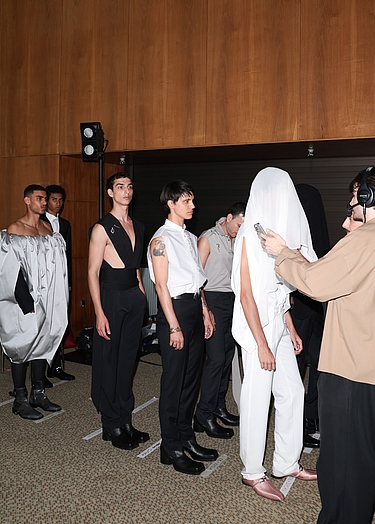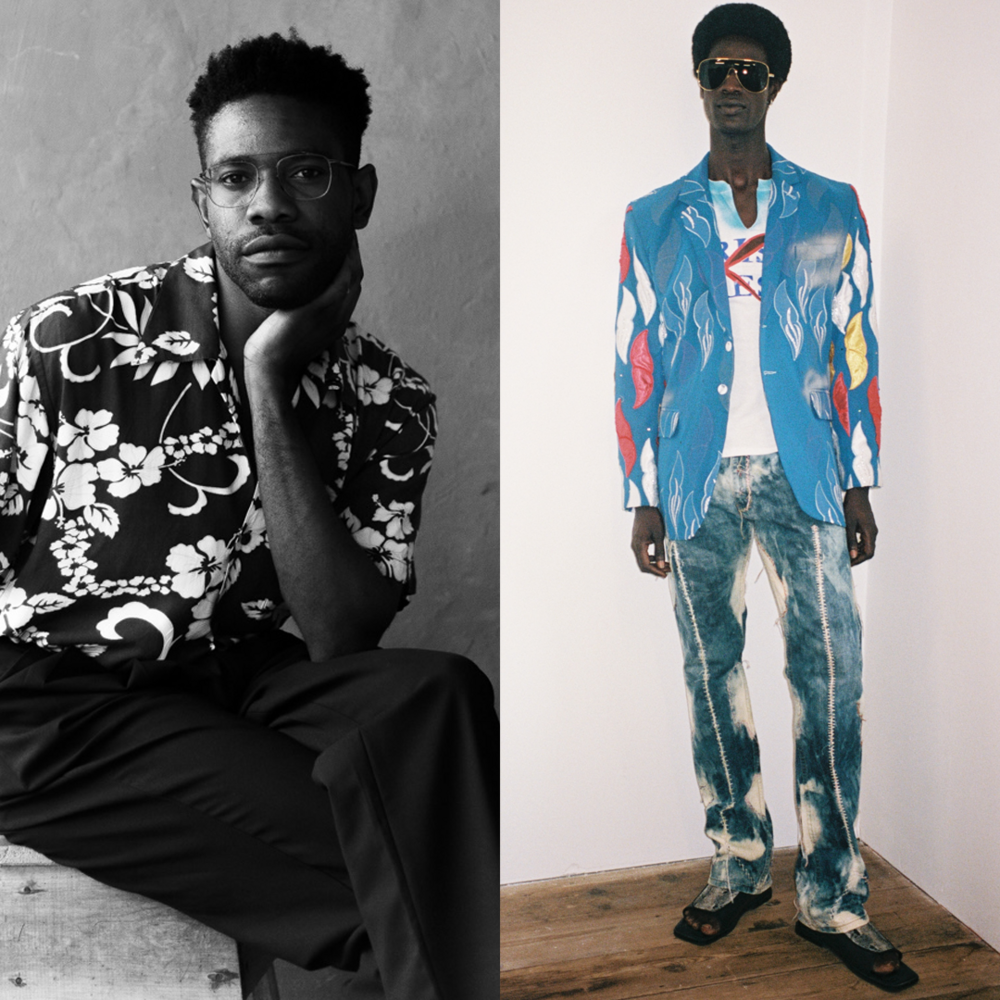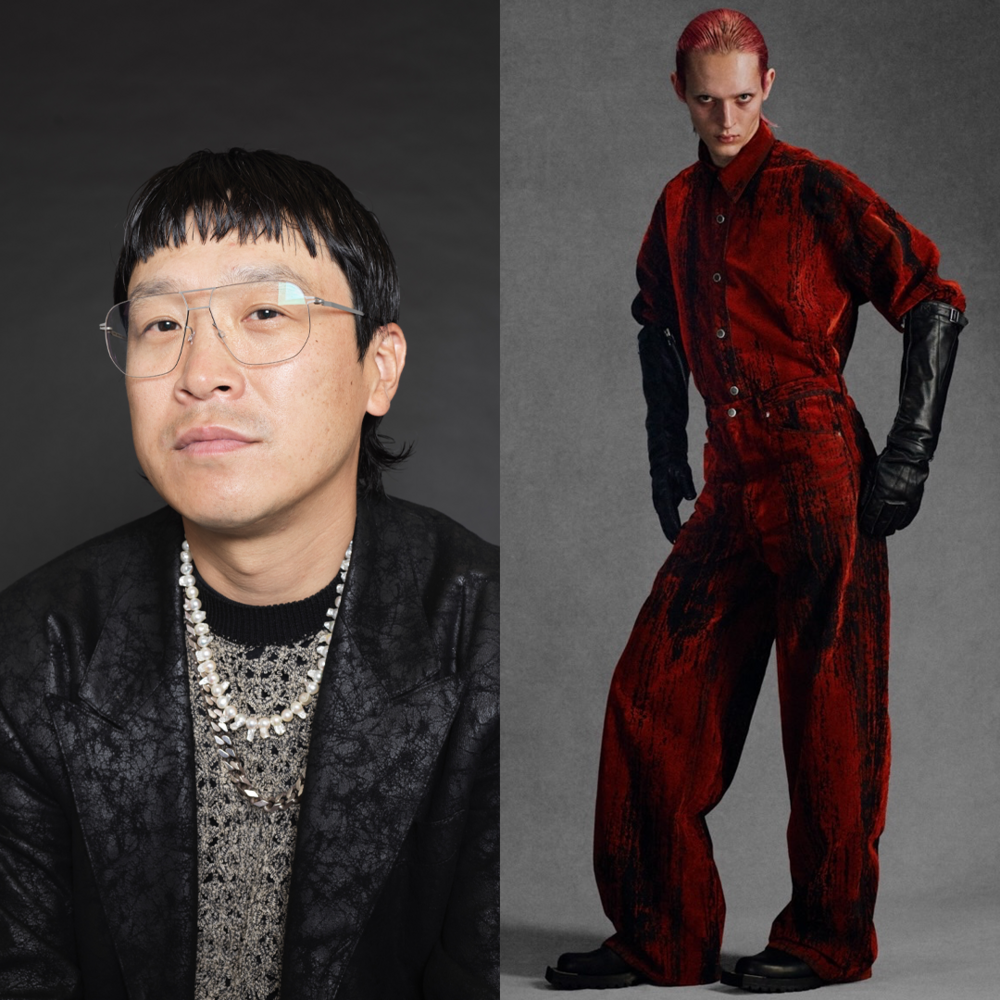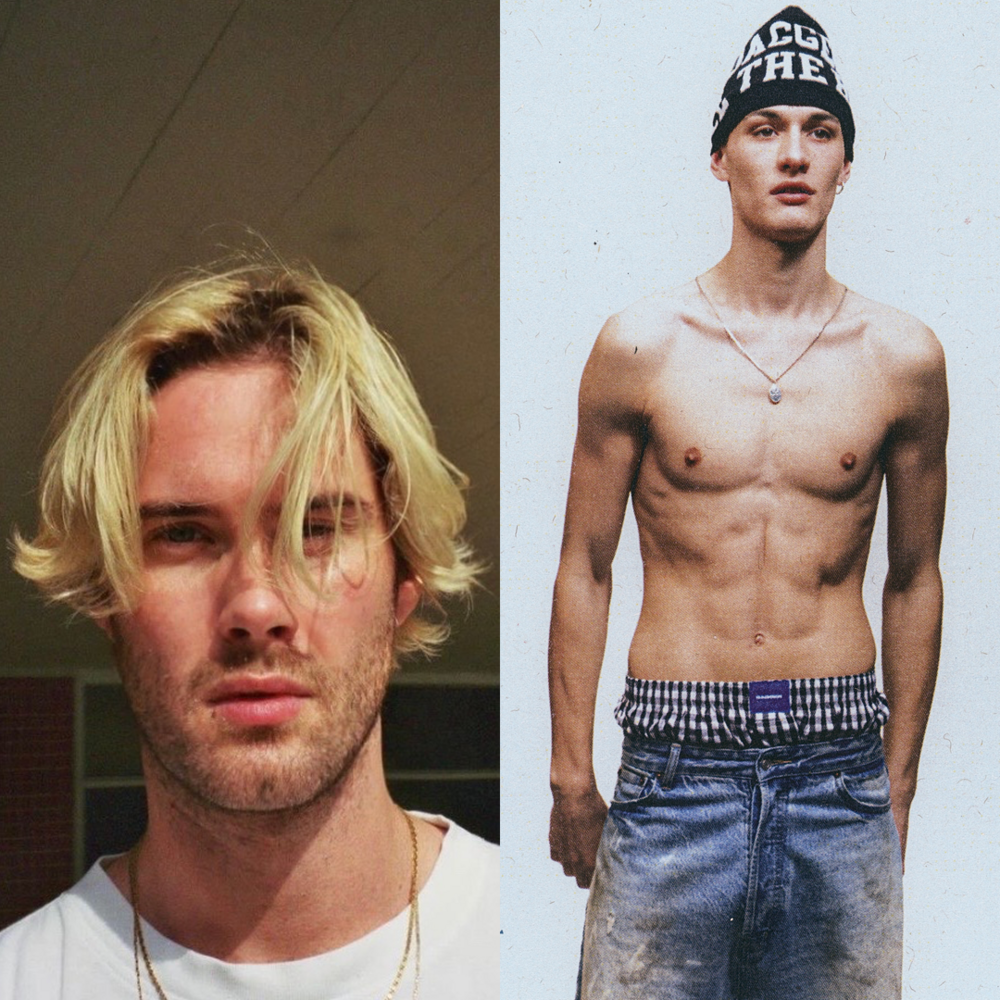
News

Berlin Contemporary enters its next round: For the AW26 season, an independent expert jury once again honored 19 designers and their outstanding show concepts. The selection focused on craftsmanship, a clear strategy regarding sustainability and diversity, as well as the commercial and economic potential of each brand. Alongside well-known and returning names from the Berlin Fashion Week calendar, this season welcomes three newcomers: DAGGER (Berlin), John Lawrence Sullivan (Tokyo), and Kenneth Ize (Lagos).

Although Kenneth Ize may be a new face within the Berlin Contemporary concept competition, the designer and his namesake brand are by no means unknown. Founded in 2013 in Lagos, Nigeria, the label made its mark with vibrant, contemporary interpretations of traditional West African textiles – most notably Aso Oke, a handwoven fabric historically worn by the Yoruba people and of deep cultural and social significance.
The Austrian-raised designer, who has Nigerian roots, collaborates with local artisans and weaving communities to preserve and honor traditional production techniques. Aso Oke is woven by hand on wooden looms – a process based on knowledge passed down through generations and requiring almost no electricity. Kenneth Ize works according to a low-waste principle, supporting local production, communities, and craftsmanship – rightfully calling it “cultural preservation”.
Through his designs, Kenneth Ize carries a piece of his heritage, identity, and history into the world – with international success. In 2019, he was a finalist for the prestigious LVMH Prize for Young Designers, and the following year, he showcased his collection at Paris Fashion Week, where models such as Naomi Campbell and Imaan Hammam walked the runway in his designs. In 2021, he created a gender-neutral capsule collection for Karl Lagerfeld.
His work seamlessly fuses cultural heritage with modern design sensibilities: bold colors, stripes, tailored pieces, and androgynous silhouettes define his collections, bridging tradition and the present. His distinctive aesthetic language continues to be celebrated by both influential fashion media and major buyers alike.

The Tokyo-based label John Lawrence Sullivan was founded in 2003 by former boxer Arashi Yanagawa, named in tribute to a legendary 19th-century American professional boxer. After his sports career, Yanagawa taught himself the craft of fashion design step by step. It all began with the deconstruction of his own vintage jackets, which he meticulously took apart and studied to create his own “recipe” for the perfect jacket.
His curiosity and determination paid off: today, the brand is part of the Japanese New Wave in menswear, known for its sophistication, vision, and strong identity. Over the past twenty years, the label’s collections have expanded to include both menswear and womenswear. At their core are precise tailoring, perfectly cut suits and jackets, asymmetric shapes, unexpected material combinations, and dynamic silhouettes.
In his designs, the Hiroshima-born creator references art, music, film, and politics, exploring new expressions of identity, gender, and strength. He blends heritage with the unconventional, using traditional materials in subcultural styles. The brand’s exquisite tailoring remains its defining hallmark, drawing a meaningful connection to Yanagawa’s first career as a boxer: both worlds demand discipline, structure, and strength.
Perhaps this is why the Japanese designer succeeds so masterfully in translating these elements into clothes, while redefining them in his own way: in his pieces, discipline meets freedom, structure meets eccentricity, and strength meets fragility.

There are a number of ways to respond to an unexpected and cold-hearted firing. Anger, sadness, or despair would be understandable. But Luke Rainey chose a completely different approach: he took the farewell words from his termination letter – “All the best” – and turned them into a design statement, stamping it on the back of a T-shirt. That became not only the first piece of his newly founded brand DAGGER launched in 2020, but also the brand’s slogan and philosophy. As if to say: just watch me. The “Core” T-shirt became an instant bestseller.
More than that, it symbolizes the spirit of the brand: DIY, rebellious, and creative. The name “DAGGER” itself is a reference to pagan symbolism, where the dagger represents beginning, end, and transformation. Rainey grew up in a small town in Northern Ireland that offered little for young adults – except for one thing that became formative: skateboarding. It gave him identity and served as a form of escapism. To this day, skate culture remains the foundation of the brand – from its aesthetics and codes to its cultural significance.
DAGGER’s designs embody authenticity, personality, and attitude. The label creates clothes meant to be worn in real life: workwear pieces, worn-in jeans, camouflage trousers, track pants, hoodies, and slogan tees.
Rainey champions not only subcultural appreciation but also visibility for working-class and queer perspectives – voices too often tokenized in fashion. DAGGER produces clothing that is both credible and refined, rooted in lived experience and real emotion.